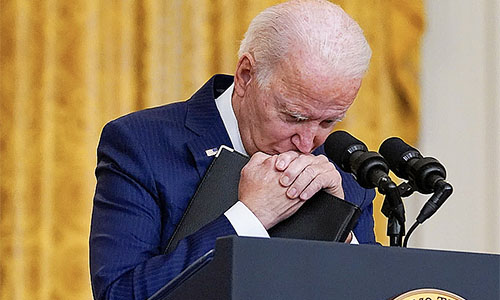Let us be quite clear on this matter: it is irrelevant whether the Voice to Parliament is, to reference the recent suggestion by both Penny Wong and The Australian, ‘inevitable’. The Voice has already accomplished all that it set out to achieve. I have repeatedly argued, and shall do so again now, that the 2023 referendum was but in aid of Labor’s ultimate objective: the rewriting of the Australian Constitution to transform this country into a republic.
I hardly need establish that the removal of the Crown is at the apex of Labor’s constitutional agenda. The party’s vendetta against the legacy of Sir John Kerr knows no sunset clause. In 2022, Anthony Albanese took the unprecedented step of appointing Matt Thistlethwaite as Assistant Minister for the Republic. Mr Thistlethwaite’s portfolio fell under the Attorney-General’s department. Why, then, was an Assistant Minister for the Voice, answering to the Minister for Indigenous Australians (who, presumably, has more duties than arguing for constitutional change), never similarly appointed? I think, reader, you can guess the answer.
Today, there is no mention of either the Voice to Parliament or the Uluru Statement from the Heart in the Australian Labor Party National Constitution, itself re-adopted by Labor less than two months before 14 October 2023. But on the document’s fourth page, B(5)(m) states:
…the Australian Labor Party stands for reform of the Australian Constitution and other political institutions to ensure that they reflect … the existence of Australia as an independent republic.
The Albanese government deliberately canned the Commonwealth’s plans to celebrate both the Platinum Jubilee and the King’s coronation. An individual who has previously described Australia Day as an ‘invasion’, was installed as governor-general. Our late Queen’s effigy has been stripped from our five-dollar note. I could go on.
We live in an age of data collection. In 1999, definitive data was collected on the prospects of an Australian republic. Ignore the numeric result, in which 54.87 per cent voted against replacing the Crown with ‘a President appointed by a two-thirds majority of the members of the Commonwealth Parliament’. From defeat in 1999, republicans drew what they continue to believe a critical conclusion. They resolved that it is virtually impossible to affect constitutional change if such change is unduly technically argued. That is, the mistake made, in republicans’ minds, was to provide the voting public with too many complicated details, leading them to feel confused and, thus, fearful.
More recently, a constitutional experiment of entirely opposite proportions was conducted. Whereas in 1998 John Howard held a well-planned convention to consider the merits of a republic referendum, the views comprising the Uluru Dialogues, themselves the purported basis for the Statement from the Heart, were collected with scant regard for the scientific method; questions put to samples of biased respondents were not standardised and were reported without scrutiny. The Voice to Parliament debate, then, threw technical argument to the wind. Proponents of the constitutionally-enshrined racial body now argued, in a contemptible display of emotional manipulation, its ‘vibe’. Legal reasoning for its merits was light to non-existent. Perhaps predictably, this inverted strategy also bred confusion and fear – as well as widespread anger and, to recycle a sentiment used extensively throughout the affair, ‘division’. The Voice was overwhelmingly defeated.
Republicans were left scratching their heads. Too much detail in 1999 had failed. So had the ill-constructed, $450 million Trojan horse of 2023. In January this year, the Prime Minister told the Guardian Australia that Labor ‘will not be holding a referendum in [its projected] second term on any issue’. I do not believe him for a second. Nor should you. Albanese’s effortless disdain for the truth has been well-documented these last three years. He is also prone to gaffes. In the next breath, he went on to tell the Guardian: ‘Referendums are hard to win in this country. And we’ve seen, I think, that all it takes is opposition.’
All it takes is opposition. But what if opposition is eliminated? In March 2023, Labor rammed through amendments to Referendum (Machinery Provisions) Act 1984. Those amendments, among other things, now make it much harder for grassroots organisations to involve themselves in referendum campaigns. The Albanese government was less successful, thank God, in its attempt to legislate Communications Legislation Amendment (Combatting Misinformation and Disinformation) Bill 2023. Certainly, in the aftermath of the Voice, I catalogued numerous claims that misinformation was to blame for the referendum’s defeat.
Historically, the National Party and Menzies’ Liberal Party have served as the central bulwarks against parliamentary and, thus, on-the-ground support for a republic. Then came the first Malcolm, Malcolm Fraser, and, later, the other one. Today, Peter Dutton’s deputy, Sussan Ley, is a public supporter of the Australian Republic Movement. One of the movement’s present co-chairs is the husband of former Canberra Liberals leader Elizabeth Lee. Until recently, the movement’s national director and chief executive officer was a former staffer to Michael McCormack when McCormack served as deputy Prime Minister.
Republican insurgents are not of any one political colour. But the fact remains that, if re-elected, Labor, the party of institutional republicanism, will continue to subvert Section 128 of the Constitution, the people’s right alone to constitutional reform. Indeed, this inevitably can only be exacerbated if Labor is forced to govern in minority with the Greens. And, so, if the Albanese government is returned this weekend, it befalls us all to keep our eyes wide open and, when appropriate, object in strong number.
Alexander Voltz is a composer and monarchist.









